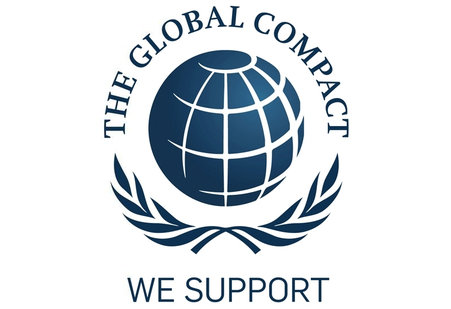Kopenhagen Fur supports the United Nations' Global Compact
Please note -
Kopenhagen Fur has proudly supported UN’s Global Compact since 2011. It has been our privilege to support the world’s largest CSR project in the world’s largest auction house for sustainable mink skins.
Due to the expropriation/eminent domain initiated by the Danish government on the entire mink sector in Denmark, a shutdown of Kopenhagen Fur and her subsidiaries has been initiated.
As such, our capacity is currently gradually being reduced, and we will, even though we are committed to the guiding principles within UN’s Global Compact, not be able to continue with our annual Communication on Progress reports.
We therefore, on 13 April 2021, formally requested UNGBC to be updated to “de-listed” with the indicating reason “Participant requested withdrawal”, as stated in the Global Compact FAQ pertaining to this subject.
The many companies of the world must be a part of the solution for the social, political and economic challenges that exist today. This is the idea behind the UN Global Compact, a programme created by the United Nations which now counts approx. 10,000 companies spread across 130 nations supporting the initiative.
As a member of the UN Global Compact, Kopenhagen Fur is committed to run the company within the framework of the UN Global Compact’s 10 principles. This framework incorporates human rights, labour standards, environment and anti-corruption.
Members of the UN Global Compact are required to report annually about status and progress. Kopenhagen Fur’s reports can be viewed on the UN Global Compact’s website.
Human Rights
Principle 1: Businesses should support and respect the protection of internationally proclaimed human rights; and
Principle 2: make sure that they are not complicit in human rights abuses.
Labour
Principle 3: Businesses should uphold the freedom of association and the effective recognition of the right to collective bargaining;
Principle 4: the elimination of all forms of forced and compulsory labour;
Principle 5: the effective abolition of child labour; and
Principle 6: the elimination of discrimination in respect of employment and occupation.
Environment
Principle 7: Businesses should support a precautionary approach to environmental challenges;
Principle 8: undertake initiatives to promote greater environmental responsibility; and
Principle 9: encourage the development and diffusion of environmentally friendly technologies.
Anti-Corruption
Principle 10: Businesses should work against corruption in all its forms, including extortion and bribery.

